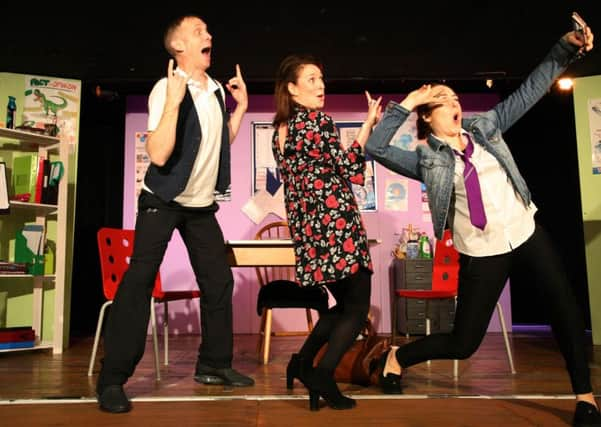Theatre reviews: I Think We Are Alone, King’s Theatre, Edinburgh | When The Penny Drops, Oran Mor, Glasgow


So at the centre of the play’s three interwoven narrative strands, delivered via a series of monologues and dialogues, we find thirtysomething sisters Clare and Ange, played by Polly Frame and Charlotte Bate, driven apart by the fact that they cannot handle their shared memory of childhood sexual abuse by an uncle; both drink to excess, take drugs legal and illegal, and – in Clare’s case – come close to ruining their lives completely. Equally buttoned up is lonely taxi-driver Graham, the bereaved husband of a woman who recently died in the hospice where Ange works as a nurse; and also barricaded behind emotional defences is black single mother Josie, whose gifted son Mannie has made it to Cambridge, but cannot make his mother hear him through her own inner clamour of grief and bitterness.
Advertisement
Hide AdAll of this is offered up in a production by Scott Graham and Kathy Burke wrapped in lashings of visual imagery, intense movement and haunting sound, as the cast shift Morgan Large’s set of moving frosted-glass panels endlessly around the stage, hiding behind them, pushing at them, becoming trapped by them. In the end, though, no amount of elegant abstract staging can conceal the fact that this is a fairly routine one-hour drama about middle-class life today, extended to an over-long two hours-plus-interval by the sheer complexity of its staging; and seduced in the end by the comforting idea that when they open up to each other, all of these tortured characters will find a measure of acceptance and peace, rather than yet more rejection and pain.
There’s a different and more entertaining myth on view at Oran Mor this week, in Catriona Duncan’s debut Play, Pie And Pint drama When The Penny Drops, about a single 41-year-old Scottish schoolteacher called Penny – played with terrific flair by Jo Freer – who copes with the trials of her job, and of life in general, by adopting an attitude of perfect detachment from it all.
This being a Glasgow comedy, though, it’s obvious from the outset, in Angela Darcy’s fine and pacey production, that while Penny’s observations on her pupils and fellow-teachers are searingly funny and acute, her daft claims to detachment from her fellow-humans are doomed to crumble; and so it proves, when she drinks so much gin during her solitary Christmas holidays that she falls down the common stair at her flat, triggering a wave of gossip around the community and the school that soon has everyone being nice to her, in ever more intrusive ways.
In Glasgow, in other words, it’s not a personal resolution to open up that finally heals the scars of loneliness, but the strength of the warm, nosy community that won’t let people go. As romantic myths go, it’s as insubstantial as any other; but with Simon Donaldson and Michele Gallagher acting up a hilarious storm as the whole range of Glasgow characters who conspire to reconnect Penny with the world, it makes for richly enjoyable theatre, with a streak of ruthless wit that leaves us breathless with laughter, even as the story warms our hearts.
JOYCE MCMILLAN